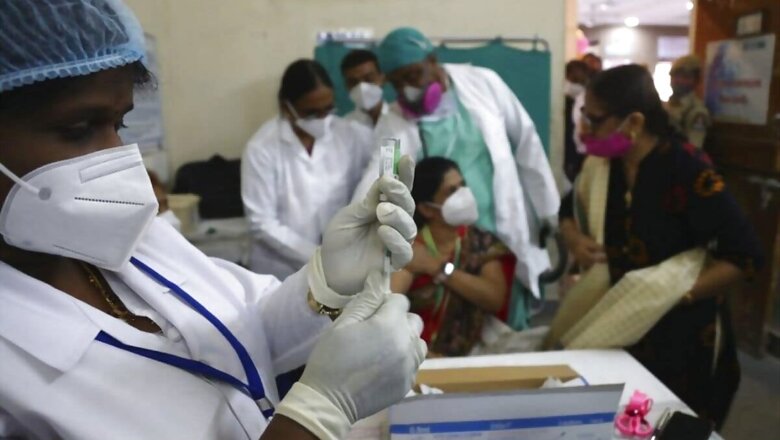
views
The coronavirus pandemic is like no other health crisis that we have witnessed in recent times. It is truly a ‘Black Swan’ event that has turned the world upside down and dealt a cruel blow to our economy and healthcare systems. And, it will certainly change our lives forever. Just when we thought we were getting over the first wave of the pandemic in January this year, we were hit by a second wave. Never in the last five decades of my medical career have I seen an event that has not only overwhelmed the healthcare systems of the world but also caused immense hardship to healthcare workers.
During the first wave of the pandemic—the disease was new and there was no vaccine—hundreds and thousands of healthcare workers got infected and many among them succumbed to the illness. The World Health Organization (WHO) reported that one in 10 healthcare workers was infected by the virus during the first wave of the pandemic. In our organization, about 15 per cent of frontline workers got infected but thankfully all of them recovered.
The COVID-19 pandemic has affected frontline health workers in many ways—getting exposed to and infected by the virus, dealing with long stressful work hours, fatigue, distress, stigma, inability to spend time with families, financial stress due to decreased footfalls of non-COVID patients, and on some occasions, even physical and psychological violence by relatives of patients who did not get desired outcomes. In fact, the impact on female healthcare workers seems to be greater than men and this deserves special attention.
But the first wave of COVID-19 pandemic has also taught us some key lessons and with the advent of vaccines, we are now better prepared to protect our healthcare workers. Some of them are:
1. Increased and better screening measures to detect COVID-19 in patients, better isolation protocols and use of personal protection equipment (PPE), especially in high-risk areas, to prevent disease transmission.
2. Training and retraining healthcare workers in protective measures along with strong hospital surveillance systems can also reduce the probability of infection in healthcare workers.
3. Use of digital technology and remote monitoring devices for tele-consultation with patients can reduce the need for physical interaction—and chances of healthcare workers getting infected.
4. A strong support system and teamwork along with staggered timings can also prevent physical and psychological burnout among healthcare workers.
5. Despite busy schedules, it is important that healthcare workers like doctors, nurses and paramedical staff try and maintain regular food habits, eat nutritious food, keep themselves hydrated, get enough sleep and stay relaxed.
6. There should be adequate and free medical care for healthcare workers who get infected by the virus.
7. Incentives for frontline workers who are in stressful and high-risk jobs are important. Assuring them of financial and social security is vital since a drop in non-COVID-related healthcare activities has significantly impacted several institutions.
8. The psychological impact of COVID on healthcare workers has been profound. Hence, frequent counselling sessions, motivational and pep talks should be conducted not only for healthcare workers but also their respective families.
9. Fortunately, for us, we have one more tool in our arsenal to fight COVID-19: vaccination. I strongly urge all healthcare workers to get vaccinated. We have had a great track record of vaccinating more than 90 per cent of healthcare workers in our organization. However, at no point should we let our guard down. Getting vaccinated is no guarantee against not contracting COVID.
10. This brings me to another under-emphasized aspect of how we can protect our healthcare workers. We must all follow COVID-appropriate behaviour. There has been a growing public indifference to importance of wearing masks, keeping social distance, sanitizing hands and taking the jab, if eligible. This kind of behaviour not only causes a rapid spread of the infection in the community but also puts healthcare workers at great risk.
Our healthcare systems and healthcare workers are being stretched to the limit by the second wave of the pandemic. They need utmost support from civil society. We are proud that despite all the hardships that healthcare workers are facing, they are fighting this pandemic valiantly. They are the warriors we need.
Read all the Latest News, Breaking News and Coronavirus News here. Follow us on Facebook, Twitter and Telegram.


















Comments
0 comment